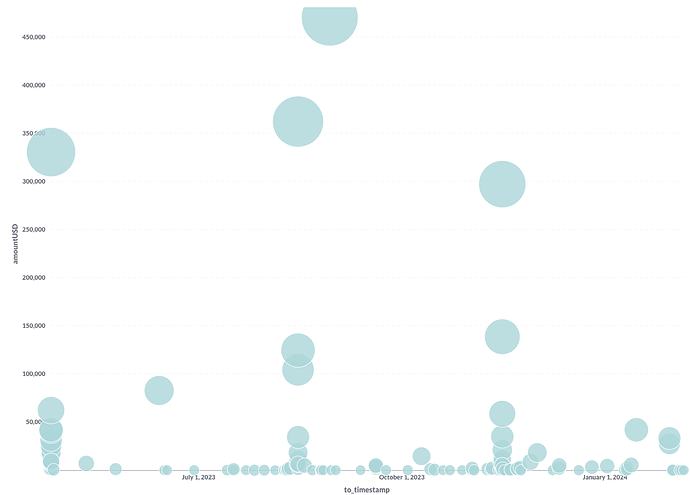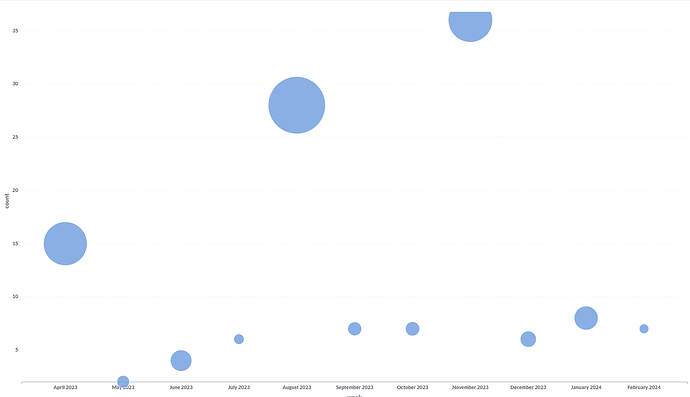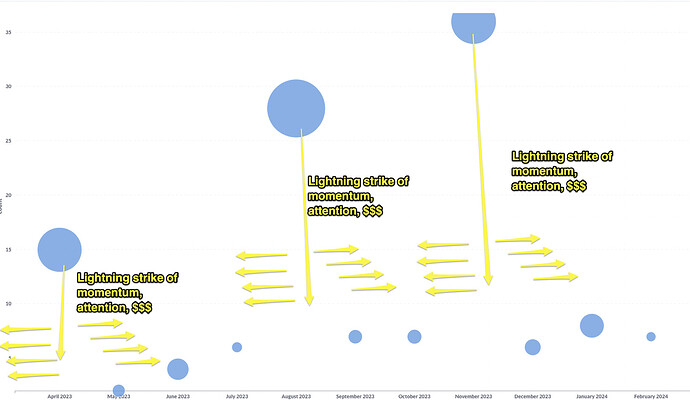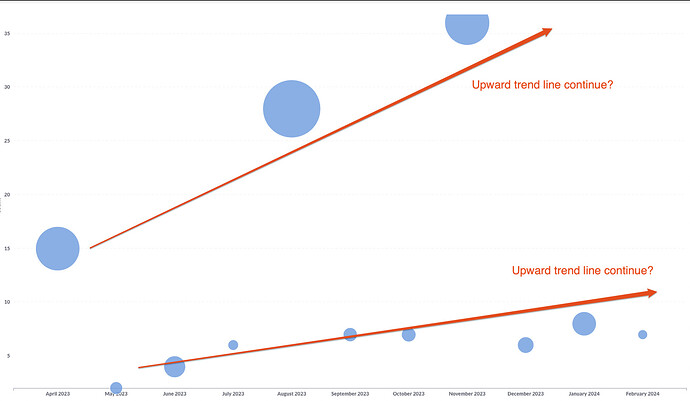Overview: Gitcoin is one of the longstanding players in the Ethereum ecosystem and is best known for its public goods funding program. The Gitcoin Grants Program started in 2019 and has distributed over $56M of funding to public goods that benefit Ethereum. It was one of the first and primary vehicles to test the revolutionary crowdfunding mechanism, Quadratic Funding.
19 rounds later, we’re even more passionate about the role of grants in growing the Ethereum ecosystem and ensuring its success and sustainability. We’ve learned a lot over the last 19 rounds, and we’re due to turn some of those learnings into action and a few changes to the program!
What we’ve learned:
- The strongest (and most growth) grantee demand is in the open-source software category. Grants managers who come to Gitcoin to run their rounds are heavily focused on funding software/dApp builders, and it’s clear that growing these projects is linked to the success of Ethereum. We want to strengthen our focus on the OSS round to support this.
- Independently run grant rounds are playing a larger role in funding what matters. Our motivation in launching a Grants protocol + dApp was to enable anyone to run their grants programs, and it’s finally possible! We’ve moved from Gitcoin running all of the rounds to having ~50 different communities launch on Grants Stack since June.
- Measuring project impact is becoming increasingly possible and important criteria in funding decisions. We’re excited to support these efforts by participating in Regen Learnings and future product efforts to measure better and track impact.
Based on these learnings, we’re proposing a series of changes to the Gitcoin Grants program.
Open Source Software Round (+ Eth Infrastructure)
First, Gitcoin will only operate one core round, Open Source Software. Due to the small size of the Eth Infra round (19 projects in GG19), Eth Infrastructure projects will be included in this round. We are interested in exploring how this round may be segmented and encouraging feedback from the community on areas of innovation (e.g., account abstraction) within OSS and potential categories for bootstrapped vs. VC-backed projects.
Second, we will increase the target matching pool for Open Source Software to $1M each round (vs $250k currently.) This will continue to be funded through our fundraising efforts, partnerships, and the gitcoin.eth matching pool. This change, as well as the core focus on OSS, is designed to deepen our investment in what we believe is the most meaningful role that our program can play in Ethereum’s growth. We believe that the strong demand from EVM-based grants programs and our depth and history in supporting OSS are a perfect fit!
Finally, we will move the Open Source Software round to run twice annually (every six months) vs every three months as it has traditionally. This allows us to dedicate larger matching pools for each round and strengthens our impact reporting and evaluation focus. When running rounds every 3 months, there are often only 6 weeks between grantees receiving funds and when they start working on their next application. This doesn’t give them enough time to effect or demonstrate their impact from the previous grant.
Web3 Community and Education Round (this section has been updated from the initial post thanks to feedback from this community)
We are proposing to transition the Web3 Community Round to a governance-led initiative. In this revised structure, we will create a dedicated pool of funds (up to $125K quarterly) to support “matching on matching” pools, with no quotas on the funds provided. This means that any funds raised by communities are eligible for matching without the previously mentioned cap of up to $25K. This adjustment aims to replace the Gitcoin-run Web3 Community and Education round, allowing aligned communities to fund what matters to them more directly and increase the matching funds available during Gitcoin Grants rounds.
For GG20, we will limit the number of community rounds to 5 to ensure we can provide adequate support in this new format. However, we anticipate increasing the number of rounds in future iterations.
We propose electing a slate of badgeholders to decide which communities/rounds are eligible for funding. These badgeholders should be active in the grants community but not core contributors to Gitcoin. If this proposal passes, we commit to gradually giving the council more authority over time. This includes creating new matching pools in areas they feel are underserved, such as a potential web3 journalism round.
Following the approval of this proposal, we will proceed with an election process for badgeholders, outline the eligibility criteria, and detail the application process for Community Rounds, ensuring a transparent and inclusive approach to governance.
NOTE: For GG20, we propose hosting the round with a slightly adjusted governance process to give us time to codify procedures and processes moving forward fully. More details on this will follow in a separate governance post.
Proposed Gitcoin Grants Program schedule for 2024:
- GG20, April 2024: Open Source software round + 5 community rounds
- GG21, June 2024: Citizen’s retro funding round + 5 community rounds
- GG22, August 2024: Open Source software round + 5 community rounds
- GG23, December 2024: Citizen’s retro funding round + 5 community rounds
Conclusion
We hope these changes create a bigger and better version of the Gitcoin Grants program – with more funding going towards grantees, focusing on funding areas of strong ecosystem demand and innovation, and proving that Grants = Growth. If this proposal passes, we’ll commit to the following:
- Executing the changes as described above
- Quickly creating and rolling out a badgeholder program for approving community round funding
- Regular reporting (post-GG20 and EOY) of the impact of these changes
Regardless of whether this passes, we’ll continue to pursue operational excellence for the program and grant innovation. We’ve run the Gitcoin Grants Program 19 times and still feel like we’re just getting started – there’s so much growth and learning ahead. We welcome your feedback on this proposal and appreciate your continued support of Gitcoin Grants!



